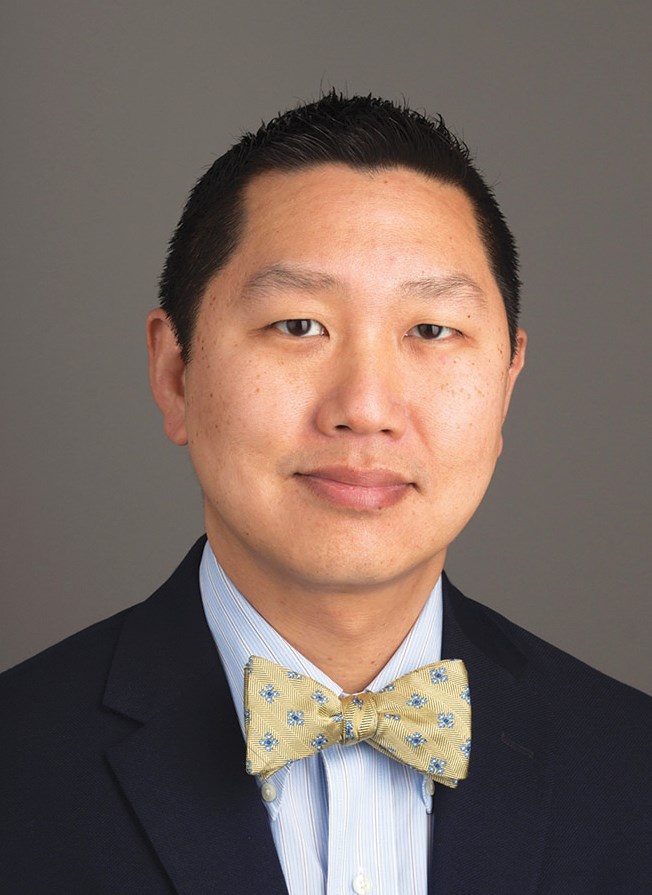Solutions, residents and the future: Q&A with The PSF President Bernard T. Lee, MD, MBA, MPH

Ahead of Plastic Surgery The Meeting 2022 in Boston, the Plastic Surgery Resident Editorial Board collaborated on a set of questions for The PSF President Bernard T. Lee, MD, MBA, MPH, Beth Israel Deaconess Medical Center Plastic and Reconstructive Surgery Division chief, which has been designed to gain his insight on leadership, the opportunities The Foundation holds for residents and its work for the specialty's future.
PSR: As The PSF president, what challenges have you experienced when leading people – and how did you overcome those challenges?
Dr. Lee: Prioritization when leading people and teams. We have many enthusiastic members who have great ideas – but, unfortunately, we're limited by time and resources. For example, as all meetings were cancelled during the height of the COVID-19 pandemic, our leadership team was presented with a lot of potential strategies for member engagement. Ultimately, we chose a Virtual Grand Rounds format led by Angela Cheng, MD, which was an extremely popular and successful program. This took much effort and planning, but the reason we prioritized this initiative was that it aligned with an organizational mission: to educate ASPS members.
PSR: With The PSF in mind, what key tips do you have for keeping your staff motivated, and what are some plastic surgery improvement programs that are increasing The Foundation's international reach?
Dr. Lee: Staff motivation is becoming increasingly important, especially with the new model of remote/hybrid work environments. As we focus more on project-based work vs. logging hours in the office, it's crucial that we respect the line between work and personal time. As for plastic surgery improvement programs, I want to highlight the registry programs – which are now consolidated under the Plastic Surgery Registries Network (PSRN). In terms of international programs, we have Surgeons in Humanitarian Alliance for Reconstruction, Research and Education (SHARE), which recently completed its inaugural, two-year virtual-educational program that mentored surgeons in sub-Saharan Africa.
PSR: What are your thoughts on the future of academic plastic surgery?
Dr. Lee: It's an exciting time to embark on a career in academic plastic surgery. We have so many talented surgeons working on the most complicated problems in our field. Whether your area of focus is research, education or clinical excellence, there's a place for new ideas and energy. For example, at the time of my residency training, there were very few surgeons even thinking about lymphatic surgery, vascularized composite allotransplantation or peripheral nerve surgery. My area of research on near-infrared imaging and tissue perfusion didn't even exist; now these devices are common in O.R.s and even built into many microscopes.
PSR: What role do you envision The PSF will have in the future of academic plastic surgery?
Dr. Lee: The role of The Foundation is to support the research and international activities of ASPS. As academic plastic surgeons continue to develop novel research ideas, the organization will be there to support these investigators. There are so many avenues for research funding – including pilot grants, innovation grants, diversity and inclusion grants, National Endowment for Plastic Surgery grants and research fellowships. In addition, our role is to identify specific areas of research with high visibility, such as breast-implant safety.
PSR: What are the major contributions of The PSF to plastic surgery residency/residents?
Dr. Lee: When I was the ASPS/PSF Board Vice President of Academic Affairs, we consolidated resident education and programming under The PSF. This allowed for alignment across a wide variety of areas within the organization, including Resident Boot Camp, Senior Resident's Day, Residents Council, Resident Curriculum Development and the Resident Education Center. Bruce Mast, MD, is the current board vice president and has been instrumental in continuing to develop all these important programs to support our trainees. When it comes to research, we have a listing of the past 10 years of funded investigators and when look at the names, many of these surgeons are now successful academic surgeons who first received funding from The PSF.
PSR: What are the ways a resident can be involved in The PSF?
Dr. Lee: Just ask! There are many committees in which a resident can be involved. The first place to start is the Resident Council, as a listing exists of all the areas one can volunteer across both ASPS and The PSF.